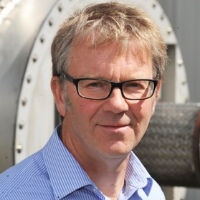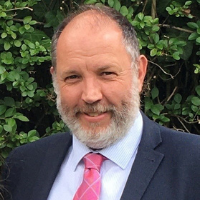Speakers

Chief Executive
North West Business Leadership Team
Emma Degg is the Chief Executive of the North West Business Leadership Team that brings together leaders of national and international businesses with substantial commitments and interests in the North West of England. Emma has spent her career focussed upon bringing together business leaders and policy makers to make a tangible difference. She serves on the UK2070 independent House of Lords Commission led by Sir Bob Kerslake and is Board Member of Made Smarter and Net Zero North West and a Trustee of ‘We Mind the Gap’.

ISCF Director
Industrial Decarbonisation Challenge
Bryony leads the Industrial Decarbonisation Challenge (IDC), which forms part of the Industrial Strategy Challenge Fund (ISCF). IDC is a £170m programme with £261m match funding from industry, designed to deploy low carbon technologies and enabling infrastructure in heavily industrialised regions of the UK.
Bryony was previously Head of Technology at Costain, with responsibility for the identification and development of new technology. She was a member of BEIS’ CCUS Cost Challenge Task Force, a Director of the CCSA (where she co-chaired the Technical Working Group) and chairs the Independent Advisory Panel for the UKCCSRC.
Prior to Costain, she was head of the R&D centre for Doosan Babcock, where she established their global R&D Centre, focussing on clean energy. Bryony previously worked for AEA Technology, leading technology and innovation in senior management roles both in the UK and internationally, including four years as President of a Joint Venture company in Tokyo.

CEO
NECCUS
Mike Smith is the CEO of NECCUS, the Scottish alliance for Industrial Decarbonisation with a focus on Carbon Capture, Usage and Storage (CCUS) and Hydrogen. NECCUS has over 50 participating organisations across industry, academia, and development agencies. NECCUS is facilitating the development of the industrial scale CCUS and Hydrogen projects in Scotland, through advocacy, engagement, communication, and education. Supporting an effective transition to Net Zero through the deployment of CCUS, the production and use of hydrogen, and promoting clean industrial growth zones across the UK.
Mike has extensive leadership experience in the Energy sector. He has recently held senior leadership roles at INEOS and Orsted, with exposure to Oil & Gas and the Renewable industry. During over 10 years at Orsted, one of the world’s leading green companies and largest offshore wind developers, he participated in the journey of that company from a coal-fired energy provider and oil & gas producer to a leader in onshore / offshore windfarms and bioenergy.

Head of Low Carbon Strategy
CATCH, Humber
Working for CATCH since its inception in 1999, Katie has been instrumental in leading cluster engagement, developing and managing CATCH’s suite of networks and grant funded programmes. Most recently securing £1.7million Innovate UK funding to develop the Humber Industrial Cluster Plan – in partnership with the Humber LEP and 8 industrial partners – a comprehensive plan for decarbonisation in the region, which will show how the Humber cluster can achieve net zero carbon emissions by 2040. With a Degree in Chemical Engineering from the University of Bath, Katie has lived and worked in the Humber region for over 20 years

Technology Manager
Tees Valley Combined Authority
Gareth combines the roles of Technology Manager for the Tees Valley Combined Authority with Business and Collaborative Program Development for TWI. A professional metallurgist and chartered engineer, he has strong interests and currently a very active role in the decarbonisation of Industry, which is combined with extensive experience in driving innovation and collaborative research. With over 35 years industrial experience in both operational and technical roles in the Steel Industry, Gareth then led the collaboration between Tata Steel and CPI which ultimately led to the divestment of the Materials Processing Institute from Tata Steel after which he then moved on to his current and somewhat novel role, with a wide range of responsibilities, relating to the decarbonisation of Industry, across both TWI and TVCA. Gareth holds a BSc in Metallurgy and an MBA from Aston University.

Head of Industrial Decarbonisation
Wales
Dr Chris Williams is a Fellow of the IMechE and the EMA. Chris has 30 years experience in the steel industry and was seconded into Industry Wales during 2020 to continue the leadership role for the South Wales Industrial Cluster.


Why is small hydro-electicity generation treated more harshly for Business Rates than utilities like gas fired, oil fired, and nuclear electricity generation?
I’m still waiting for a reply. Am I registered?